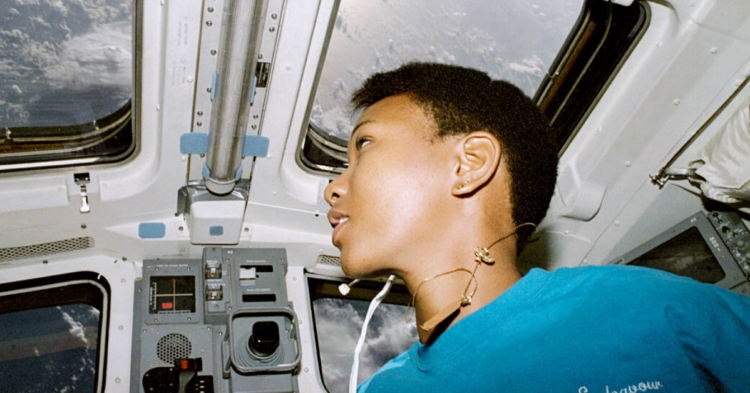Perhaps now more than ever, it’s important to recognize and pay tribute to the most notable Black scientists from history who left their mark on society, and helped to further mankind’s understanding of both our world and the universe that surrounds us.
These men and women of science have made significant contributions to their respective fields, and while some names might be familiar to you, others you may be hearing for the very first time.
This list is certainly not exhaustive, and the scientists who have been spotlighted appear in no particular order.
Katherine Johnson (1918-2020)

American mathematician Katherine Johnson , considered to be one of NASA’s early “human computers”, overcame significant social boundaries and racial discrimination as a Black female working at the agency.
During her incredible career with NASA, Johnson calculated and analyzed the flight paths of many spacecrafts, and not only helped send a man into space in the early 1960s, but also completed the calculations for Apollo’s Lunar Landing later that decade.
Edward Alexander Bouchet (1852-1918)

In 1876, Edward Alexander Bouchet made history by becoming the first Black man to ever earn a doctorate degree in the U.S. At that time in history, only few other people in the country had ever earned that same degree.
After receiving his PhD in physics, Bouchet went on to educate and inspire thousands as a science teacher at a school for Black students for 25 years.
Alice Ball (1892-1916)

At the age of 23, American chemist Alice Ball developed the first successful treatment for leprosy. She is also recognized as being the first woman, and the first Black American, to graduate with a M.S. degree in chemistry from the University of Hawaii, then known as the College of Hawaii.
The “Ball Method”, as her discovery was dubbed, proved so successful that thousands of patients suffering from leprosy were discharged from hospitals all around the world. Tragically, Ball would pass away at the age of 24 before being able to witness the full impact of her incredible achievement.
Percy Julian (1899-1975)

Percy Julian was a Black research chemist whose pioneering work in the chemical synthesis led directly to the discovery of such medicinal drugs as birth control, cortisone, and steroids.
Before his death in 1975, Julian held over 100 chemical patents and received dozens of awards and honorary degrees. In 1990, he was formally elected to the National Inventors Hall of Fame.
Neil deGrasse Tyson (1958-present)

American astronomer and astrophysicist Neil deGrasse Tyson is credited as being a “science popularizer”, meaning he uses his platform as a well-known figure in the world of science to advocate for learning and encourage space exploration.
His accessible voice and delivery helps make complex scientific subject matter more universally understood and, subsequently, appreciated.
Jane C. Wright (1913-2013)

Jane Cooke Wright was an American oncologist whose research paved the way for modern cancer treatments.
In the early to mid-20th century, chemotherapy wasn’t one of the “go-to” approaches for treating cancer patients, but Wright and her colleagues made many strides towards establishing it as a viable treatment option.
Wright is also credited as being a founding member, and notably the only female member of the group that formed the American Society of Clinical Oncology (ASCO).
Marie M. Daly (1921-2003)

Biochemist Marie M. Daly was the first Black woman to ever earn a Ph.D. in chemistry in the U.S., and her groundbreaking research on cholesterol, sugars, and proteins, as well as on the correlation between high cholesterol and clogged arteries, was crucial to understanding heart disease.
Otis Boykin (1920-1982)

American inventor and engineer Otis Boykin is credited for improving the function of the artificial cardiac pacemaker by creating a control unit. The device he invented uses electric impulses to help the user maintain a regular heartbeat.
Boykin also invented electronic control devices for guided missiles and IBM computers, and invented a wire precision resistor.
George Washington Carver (1864-1943)

George Washington Carver was an American agricultural scientist and inventor who is credited with coming up with over 100 uses for the peanut, as well as for sweet potatoes and soybeans.
Carver was born into slavery a year before it was outlawed, and went on to pursue a career of teaching and of agricultural research. His work was so prolific that President Theodore Roosevelt regularly sought his advice on the United State’s agricultural matters.
Mae C. Jemison (1956-present)

American physician and engineer Mae Jemison is credited as being the first Black woman to ever travel to space after flying aboard the Endeavour on September 12, 1992. During this mission, she logged 190 hours, 30 minutes, and 23 seconds in space
Years prior, in 1987, Jemison became the first Black woman to be admitted into NASA’s training program, and ultimately left the agency in 1993 to teach at Dartmouth College.

















































